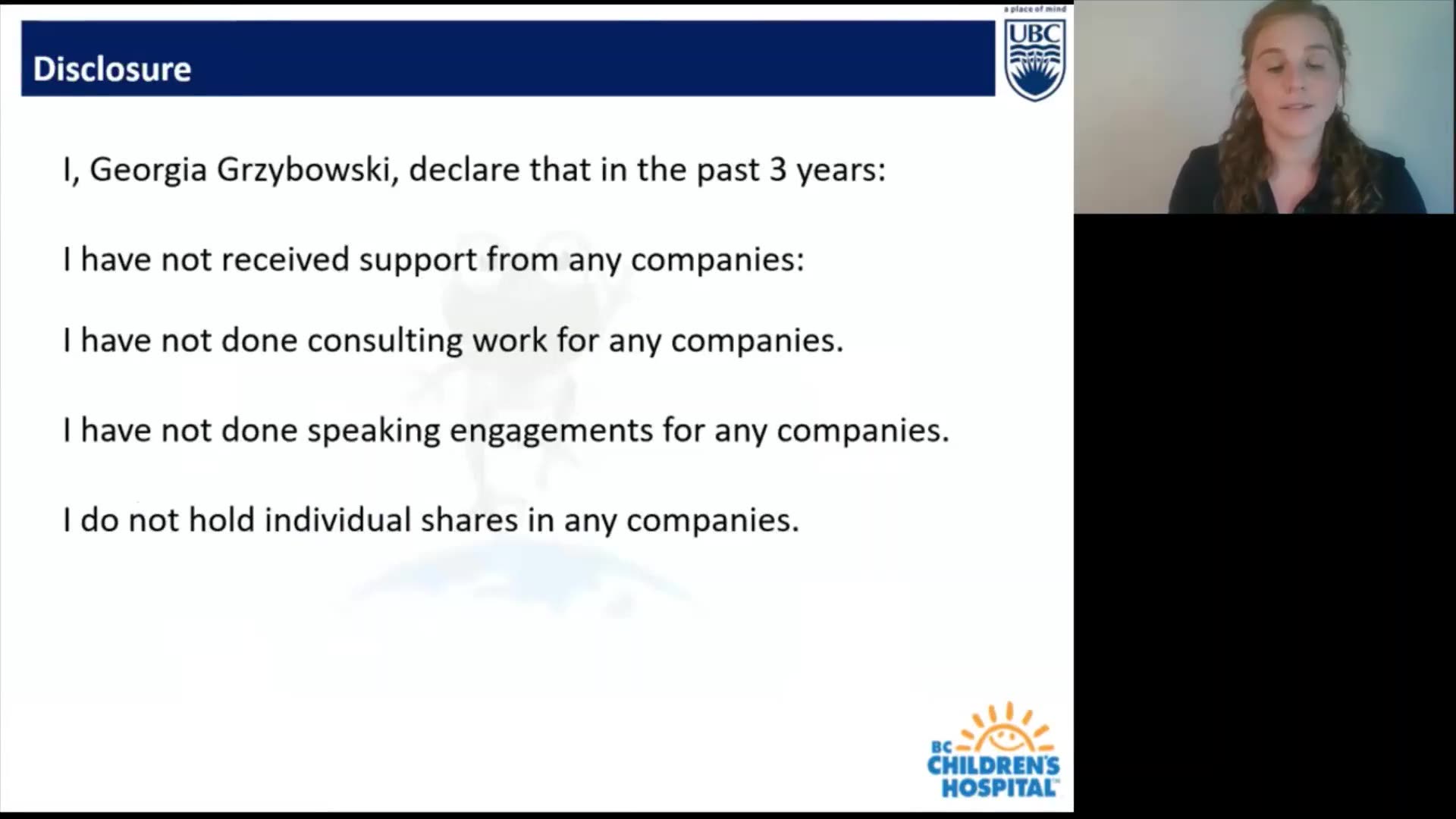Please login to view this media

- Talk
- 05/09/2021
- Canada
Caregiver Experience Using Nonsurgical Treatment Options for Developmental Dysplasia of the Hip in Children
Description
Georgia Grzybowsky presents on caregiver experiences with robotic treatment options for developmental dysplasia of the hip (DDH) in children. DDH is a common pediatric condition characterized by hip joint misalignment. Treatment for infants typically involves orthotic devices like the Pavlik Harness and the Rhino Brace, which caregivers must use for long periods without much medical supervision. Adherence to wearing these devices is crucial for success, yet non-adherence can lead to increased treatment duration or failure. The study aimed to assess caregiver attitudes and experiences with DDH orthotics through a survey collecting over 500 responses, focusing on orthotic usability, user experience, and areas for improvement. Findings indicated a generally positive perception of the orthotics, but with notable concerns regarding the Pavlik Harness, particularly related to cleanliness and discomfort, suggesting opportunities for design enhancements. While caregivers reported bonding experiences during treatment, challenges with cuddling were highlighted, raising questions about emotional attachment. The study underscores the need for improved designs to enhance caregiver experience and adherence, with limitations around sample size and recall bias noted. Overall, the presentation calls for further investigation into these complexities to improve treatment outcomes.